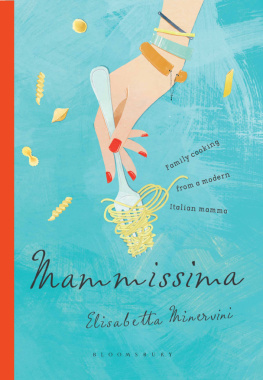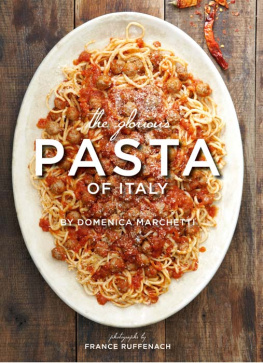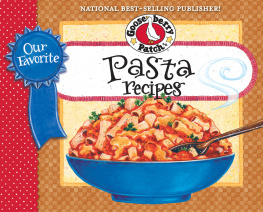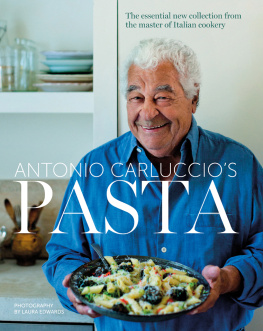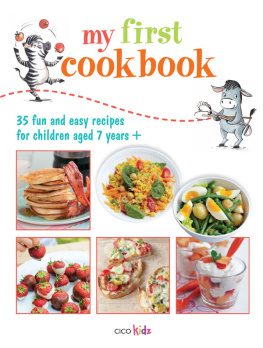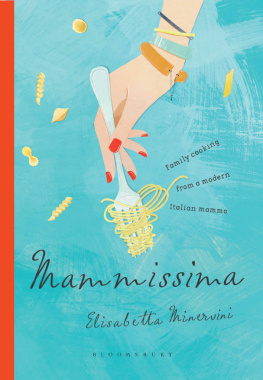
For Eleonora and Emiliano
Bloomsbury Publishing
An imprint of Bloomsbury Publishing Plc
50 Bedford Square, London, WC1B 3DP, UK
1385 Broadway, New York, NY 10018, USA
www.bloomsbury.com
Bloomsbury is a registered trademark of Bloomsbury Publishing Plc
This electronic edition published in 2016 by Bloomsbury Publishing Plc
First published in Great Britain 2016
Text Elisabetta Minervini, 2016
Photography Jonathan Kennedy, 2016
Illustrations Babeth Lafon, 2016
Elisabetta Minervini has asserted her right under the Copyright, Designs and Patents Act, 1988, to be identified as Author of this work.
All rights reserved
You may not copy, distribute, transmit, reproduce or otherwise make available this publication (or any part of it) in any form, or by any means (including without limitation electronic, digital, optical, mechanical, photocopying, printing, recording or otherwise), without the prior written permission of the publisher. Any person who does any unauthorised act in relation to this publication may be liable to criminal prosecution and civil claims for damages.
No responsibility for loss caused to any individual or organization acting on or refraining from action as a result of the material in this publication can be accepted by Bloomsbury or the author.
British Library Cataloguing-in-Publication Data
A catalogue record for this book is available from the British Library.
Library of Congress Cataloguing-in-Publication data has been applied for.
ISBN: HB: 978-1-4088-5556-0
ePub: 978-1-4088-5557-7
Designer: Georgia Vaux
Photographer: Jonathan Kennedy
Food stylist: Emily Jonzen
Prop stylist: Cynthia Inions
Illustrator: Babeth Lafon
To find out more about our authors and books visit www.bloomsbury.com. Here you will find extracts, author interviews, details of forthcoming events and the option to sign up for our newsletters.

Introduction
It was during one of our familys dinnertime gatherings, around a bowl of lentil soup, that my daughter Eleonora looked up to me with a smile and said: Thank you, Mammissima! Lentil soup is a simple dish, yet for her it meant the best of home... and with that word, this book began.
Im a working mum who believes that cooking every day for my family is always worth the effort. This book will show you how fresh, simple food can bring Southern Italian sunshine and flavours to your home, on weekdays as well as at weekends.
I was born in Puglia, the heel of Italy, only a short sail from Greece across the Adriatic Sea. For generations, my family has lived in Molfetta, near Bari, a medieval port and thriving fishing town whose ancient walled borgo is itself shaped like a fishbone.
Puglia is a region full of natural beauties and blessed with mild weather throughout the year. Its seas offer an abundance of fish and seafood, and its fertile land produces a wealth of fruit and vegetables such as olives, figs, wheat, almonds and grapes, used to make our celebrated oils, wines, pastas and sweets.
Olive trees in particular mean home to me: every time I am about to land in Bari, their twisted, knotted trunks, their artistically bent, gracious shapes seem to welcome me back. Olive oil runs in the blood of every true-born Puglian and is the cornerstone of our cuisine. Used instead of butter, it gives a delicate taste to our soups, pastas and salads, and is essential in the production of vegetable preserves, from sun-dried tomatoes, artichokes and aubergines to peppers and the formidably spicy pric o prac pickle.
As in the rest of Southern Italy, Puglian life centres around the family and its rituals. My childhood recollections are rich with memories of flavours. Wed gather around the table, all of us orbiting the feast a steaming bowl of orecchiette pasta, a warm, herby focaccia, a glistening pot of octopus stew.
My grandmother used to get us all to help in making passata, the sieved tomato pure that is fundamental to our cuisine. She would buy an industrial quantity of San Marzano plum tomatoes from local farmers, especially if their land was near the coast, as she wanted the tomatoes to have some of the fragrance of the sea. They were washed and boiled, then passed through a sieve grinder. The tomato juice was poured into thoroughly cleaned glass bottles, and sometimes herbs and spices were added. The bottles were hermetically sealed, then wrapped in sheets of newspaper to protect the glass from the heat and placed inside metal drums for boiling. After an hours cooking, they were taken out and left to cool in large plastic tubs full of water. Then we had homemade sauce that would last throughout the year.
Although I left all that behind when I moved to Britain over fifteen years ago, I was able to recreate part of the food of my homeland with my new family: my husband Alessandro, himself a keen cook, and our children Eleonora and Emiliano, who are now thirteen and ten years old.
Cooking is how you keep traditions alive, and it is a focal point and unifying element of family life. Food instils culture through small, everyday pleasures; its the smell of supper cooking while the children are doing their homework. When I cook spaghetti with roasted tomatoes or other dishes they love, they race into the kitchen, already knowing what will be on the table. Such scents and flavours become familiar and make us feel that we are at home: This is what I recognise this is what I like.
And beyond the importance of culture, good food helps your children to grow and develop well. You always want to offer what is best for your children. That is Nature; that is love. The greater the variety of foods that children eat, the better a varied diet is part of the secret to a healthy life. The challenging thing is to mix something that they dont know or like into something that they do. But, in general, children are curious. So if you present something new in an attractive way, they might give it a go: they might say its disgusting, but at least youve tried. Or they might say its fantastic and ask for more. On the whole, freshness and diet are largely a question of habit; once children are used to high-quality food, why would they want something thats less delicious?
To get children to eat well, mammas have to be inventive. Its true that, with all the pressures and commitments of modern living, spending enough time in the kitchen can be a challenge. This book is intended for busy parents like me who have little time on their hands but still want to give their family delicious, healthy food.
Puglian cuisine lends itself perfectly to this, since its light, warm and nutritious. It is a treasure trove of recipes that children tend to love and which, thanks to their rustic nature, are extremely simple to prepare. From spaghetti with green beans to stuffed peppers and fish soup, these dishes brim with all the natural flavour and wholesome quality of Mediterranean life. They are the authentic meals of the Italian family table slightly adapted at times so that you can find the ingredients more easily here.
Putting together these recipes has enabled me to rediscover an important part of the cultural heritage of my region. Behind every list of ingredients there is always a rich personal and collective story, because through food we express who we are and where we come from. I hope this book will not only give you some inspiration in the kitchen but also encourage you to reconnect with your own roots and food culture.
Next page
